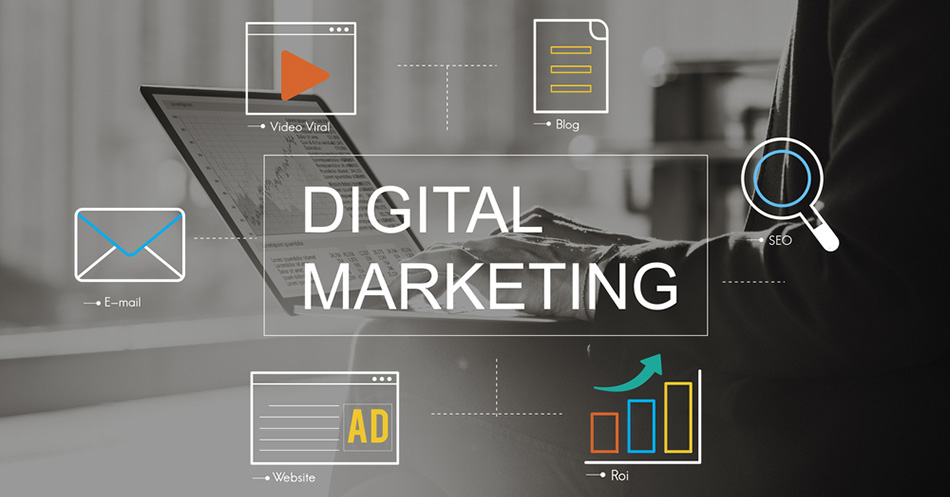What Are Some Digital Marketing Goals and Metrics?

How many times has an intriguing ad caught your attention while Googling or scrolling through your social feed? Chances are you’ve clicked on many of them, almost compelled to find out more about the item or business. Did you instantly take notice when you realized an ad promoted something you just heard about on your favorite radio show? That is the power of a well-crafted digital marketing campaign.
In 2021, global digital ad spend will likely total $650 billion. Digital marketing is a vital component of your marketing mix. It materially strengthens a well-formed strategy based on your objectives. Digital marketing is exceptionally effective when paired with awareness mediums like radio.
The Benefit of Digital Marketing
Digital marketing is a broad term encompassing several techniques such as SEM, email marketing, and content marketing/SEO. Search engine marketing or SEM is the name for the results at the top of your search page flagged with an ad icon. Search engine optimization or SEO boosts your ranking in organic search results. Content marketing is the name for blogs, videos, or social media posts designed to create interest and awareness of a product or business.
Digital marketing reaches people during crucial decision-making stages and can influence even those who think they’ve already made their choice. For example, when planning your vacation, and you believe you’ve picked your hotel or resort. Before you can book, you start seeing ads for another place with even better views, more amenities, or a better price. Suddenly, you are booking a location you are much more excited about that you didn’t even know existed until you saw their digital ad.
Awareness is a differentiator. It is the key to lead generation. You may have the most remarkable property, service, or product at an unbelievable price, but if no one knows about it, you aren’t likely to be successful. Awareness campaigns like radio ads not only increase digital ad credibility but increase their effectiveness.
Digital Marketing Goals
Every campaign starts with goals. After all, what is the campaign’s purpose but to produce results that increase awareness, gain a competitive advantage, increase sales, or increase customer engagement? There is no boilerplate for digital marketing goals. Every organization’s goals vary depending upon its specific needs.
Newer businesses may want to focus on increasing sales or expanding their brand presence and credibility. After all, who doesn’t immediately start researching a brand the first time they see it? Almost every brand is interested in increasing online customer engagement, streamlining costs, and adding value to customers. Digital marketing gives every business owner multiple ways to meet their goals in a way that resonates with their target customers.
Key Metrics to Track Success
Once you’ve determined your goals and designed your campaign, you must establish metrics to track the efficacy of different techniques and strategies. They let you know which works best as strategic investments, which you should abandon completely, and what needs some reworking. There are many ways you can measure how well your digital marketing techniques are working, including:
- Click-through-rate – This metric indicates how effective your ad is in getting the attention of consumers. The higher your CTR, the better.
- Response rate – Response rate measures engagement by dividing the number of customers responding by the number of customer exposures multiplied by 100. It indicates how often a customer responds to your communication.
- Organic traffic – Organic traffic is measured as a result of inbound marketing efforts or SEO. It measures traffic from search engine results that are not a direct result of a paid ad. Organic traffic is essential for sustained results over time, while paid traffic is good for quick results.
- Conversion rate – This metric indicates how many of your visitors complete a desired action. The term conversion typically shows how many visitors or leads turn into customers. Conversions are the result of effective marketing and combined with excellent web design.
- Bounce rate – This metric tells you how many of your site visitors leave a page without navigating to any other pages on your website. You want to minimize this number.
- Average time on page – The average time on page metric indicates your site’s stickiness or how long visitors spend on each page. It is a critical indicator of the performance of your content. It can also show you which pages are not as compelling compared to others on your site.
Digital Marketing Is a Sound Investment for Brand Success
Digital ads are a fact of life. There are many options for targeting your desired audience and catching their attention in engaging and impactful ways. A successful digital campaign is based on a business’s unique goals and can vary based on the brand’s maturity, emerging needs, seasonality, or any number of objectives. It is a critical tool that allows you to grow brand awareness, increase customer engagement, gain a competitive advantage, and scale your business.
Digital is a powerful and accessible channel for reaching customers. It works particularly well with other mediums like radio, which have proven highly effective in increasing awareness. You must establish the right metrics for each digital marketing campaign so you can track and measure the performance of the various strategies to ensure the best ROI. Partnering with a proven digital agency is the first step in a winning digital marketing strategy.
Share This
Subscribe
Stay on top of industry news and trends.
